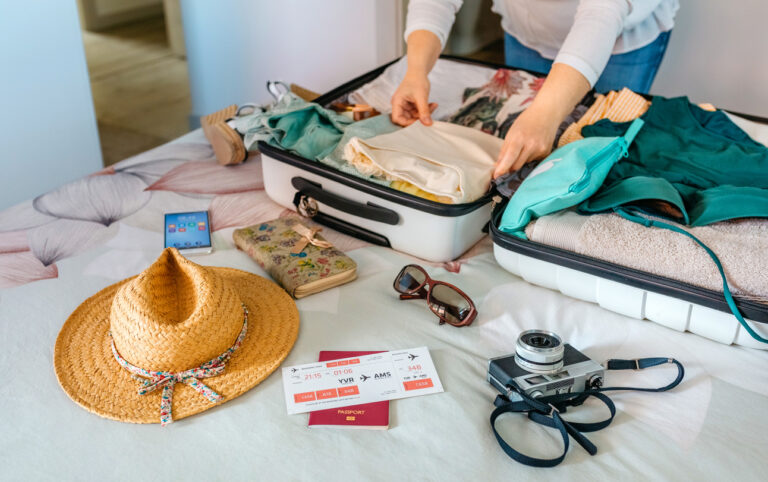Getting Sick on a Cruise: Costs, Treatment Options & Recovery Tips

Cruising is an exciting way to explore the world, but getting sick on a cruise can be stressful and costly. Whether it’s a minor illness or a serious medical emergency, knowing how to handle health concerns at sea ensures you understand onboard medical care, costs, insurance claims, and recovery options.
This guide covers everything you need to know about getting sick on a cruise, helping travelers prepare for unexpected health issues while sailing.
Understanding Onboard Medical Care
Cruise ships are equipped with medical centers, but their capabilities vary depending on the ship and cruise line.
1. What Medical Services Are Available on a Cruise Ship?
- Basic Medical Care – Treatment for minor illnesses, injuries, and routine health concerns.
- Emergency Stabilization – Ships can stabilize patients until they reach a hospital.
- Prescription Medications – Limited supply of common medications available.
- X-Rays & Lab Tests – Some ships offer basic diagnostic services.
- Telemedicine Consultations – Some cruise lines provide virtual doctor visits.
2. Who Works in Cruise Ship Medical Centers?
- Licensed Doctors & Nurses – Staffed by qualified medical professionals.
- Emergency Response Teams – Trained to handle urgent medical situations.
- Specialists (Rarely Available) – Some luxury cruises may have specialist doctors.
By following onboard health services explained strategies, travelers can understand what medical care is available at sea.
Costs of Medical Care on a Cruise Ship
Medical care on a cruise ship is not free, and costs can add up quickly.
How Much Does Cruise Ship Medical Care Cost?
- Doctor Consultation: Varies by cruise line, but many cost $100-$200 per visit.
- Emergency Treatment: Costs vary based on severity and required care.
- Medications: Prices depend on availability and type.
- X-Rays & Lab Tests: Can range from $50-$500.
- Medical Evacuation: Can cost $30,000 or more.
Does Health Insurance Cover Cruise Medical Costs?
- Most U.S. health insurance plans do NOT cover cruise medical expenses.
- Travel insurance can reimburse medical costs and emergency evacuations.
- Some cruise lines offer medical protection plans for added coverage.
By following cruise medical costs and insurance strategies, travelers can plan for potential expenses and avoid financial surprises.
Emergency Treatment & Evacuation Procedures
Cruise ships have strict protocols for handling medical emergencies.
What Happens in a Medical Emergency at Sea?
- Immediate Assessment – Medical staff evaluate the situation.
- Treatment & Stabilization – Patients receive care onboard.
- Medical Evacuation (If Needed) – Helicopter or port transfer arranged for serious cases. Not sure if travel insurance is really necessary? I break down the costs, pros, cons, and real-life scenarios in this post: Do You Really Need Travel Insurance for a Cruise? Spoiler: after seeing what onboard care can cost, it’s worth a closer look.
- Quarantine for Contagious Illnesses – Passengers may be isolated if necessary.
How to Get Help in a Medical Emergency
- Call Guest Services or Medical Center – Available 24/7.
- Use Emergency Phones – Located throughout the ship.
- Notify Crew Members – Staff are trained to assist.
By following emergency treatment at sea strategies, travelers can respond effectively to medical situations.
Filing Insurance Claims for Cruise Medical Expenses
If you receive medical treatment on a cruise, you’ll need to file an insurance claim to recover costs.
How to Submit a Travel Insurance Claim
- Save All Receipts & Documentation – Required for reimbursement.
- Contact Your Insurance Provider ASAP – Some policies have strict deadlines.
- Provide Medical Records – Helps verify treatment details.
What If You Don’t Have Travel Insurance?
- You must pay out-of-pocket for all medical expenses.
- Foreign hospitals may require upfront payment before treatment.
- Cruise lines do NOT accept traditional health insurance.
By following cruise travel insurance claims strategies, travelers can navigate the reimbursement process smoothly.
Recovery Tips & Returning to Your Cruise Activities
After receiving medical treatment, it’s important to recover properly before resuming activities.
How to Recover from Illness on a Cruise
- Rest & Hydrate – Helps speed up recovery.
- Follow Doctor’s Orders – Take prescribed medications.
- Avoid Crowded Areas – Reduces risk of spreading illness.
- Want to be prepared before you even pack? My Cruise Packing List includes a full section on over-the-counter medications and health essentials to bring—just in case.
When to Seek Further Medical Care
- If symptoms worsen despite treatment.
- If you experience severe pain or breathing issues.
- If you need specialized care not available onboard.
By following recovering from illness on a cruise strategies, travelers can return to enjoying their vacation safely.
Final Thoughts: Getting Sick on a Cruise
Knowing what happens if you get sick on a cruise ensures travelers understand onboard medical care, costs, insurance claims, and recovery tips. By preparing ahead, packing essential health items, and securing travel insurance, cruisers can navigate medical situations with confidence.
Before your next cruise, review your health coverage, familiarize yourself with onboard medical services, and take proactive steps to stay safe, ensuring a smooth and worry-free journey at sea!
Want more planning tips for managing medical needs while cruising? Don’t miss my guide to Cruising with Health Conditions—from refrigerated meds to onboard support, it’s full of personal insight and prep advice.
Want to learn more about whether travel insurance is worth is? Check out my blog post: Do You Really Need Travel Insurance for a Cruise? Pros, Cons & Cost Breakdown.







